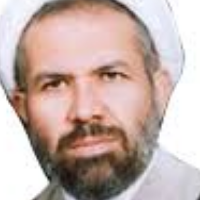The Logic and Content of a Curriculum for Teaching the Value of Self-Control
Author(s):
Article Type:
Research/Original Article (دارای رتبه معتبر)
Abstract:
Due to the significance of turning from external control to internal, as a central value in the field of religious-moral education the present research is focused on determining the logic and content of a curriculum for teaching the value of self-control. As a result, and with the purpose of clarifying the concept of self-control, initially attempts are made to clarify the perspectives of both religion and psychology on this matter using the conceptual analysis on the one hand, and synthesizing the theoretical foundations, on the other. Having that achieved, the merging of these two perspectives at the nucleus level is attempted using the compounding method. Then the logic and content of a curriculum was derived from the conceptual clarification. The results show that the logical foundation of teaching self-control is not necessarily religiously inspired; rather it is hidden in our existential necessities and the need to face it consciously. The content of the curriculum, too, considering the requirements of self-control, is suggested in two main areas of knowing and caring for oneself. In organizing the content, the combinatory approach is emphasized. This model in two forms is presented: a) combination of subjects and themes risen from the concept of self-control (as a separate subject/course), and b) combination of the same elements in order to connect to other subjects in the curriculum.
Language:
Persian
Published:
Journal of Education, Volume:34 Issue: 1, 2018
Pages:
53 to 74
https://www.magiran.com/p1826309
سامانه نویسندگان
مقالات دیگری از این نویسنده (گان)
-
Critical Review of Existing Classifications of Religious Sciences and Presentation of a Goal-Oriented Alternative: A Step towards a Civilizational Perspective
Maghsoud Amin Khandaghi *, Azam Mohamadzadeghasr, Morteza Karami, , Saeed Javad Ghandili
The Qur’an and Science, -
A Philosophical Explanation of "Te Whariki" (The New Zealand National Early Childhood Education Program) and its critical review from the perspective of "Philosophy of Education in the Islamic Republic of Iran”
Mohammad Ppourhoseini, Ali Reza Sadegh Zadeh Ghamsari *, Ebrahim Talaei, Mohsen Imani Naeini
Journal of Thinking and Children,


